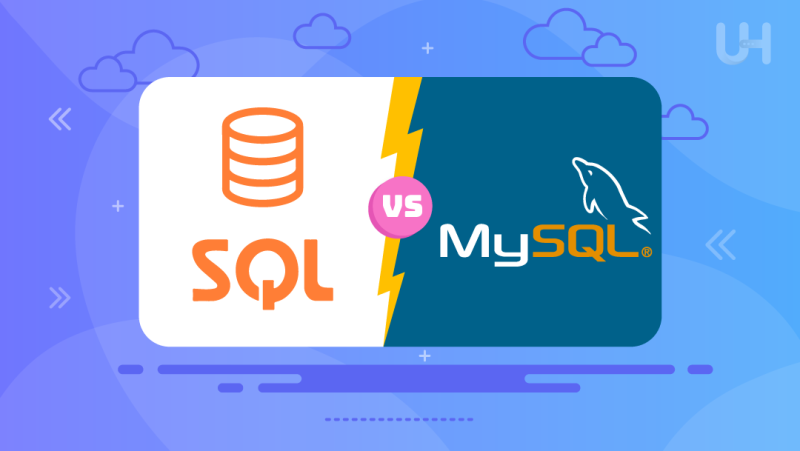When it comes to data management, selecting the right tools and technologies is crucial for ensuring seamless operations. Among the most common terms you’ll encounter are SQL (structured query language) and MySQL. While they are closely related, there are many difference between SQL and MySQL for different purposes in the world of databases. Understanding the difference between SQL and MySQL and their respective strengths is essential for determining which one is the best fit for your data management needs.
What is SQL?
SQL (structured query language) is a programming language used to interact with and manage relational databases. It is the standard language for querying, inserting, updating, and deleting data in databases.
Key Features of SQL:
- Database Interaction: SQL allows users to communicate with relational databases.
Standardized Language: It follows standardized syntax (ANSI SQL) used across multiple database systems.
- Querying: enables powerful data retrieval using SELECT, WHERE, JOIN, and other clauses.
Data Definition and Manipulation: SQL supports creating, altering, and managing tables, as well as data insertion, updating, and deletion.
- Universality: SQL is used in numerous database systems, such as MySQL, PostgreSQL, SQL Server, and Oracle.
What is MySQL?
MySQL is an open-source relational database management system (RDBMS) that uses SQL as its primary language for interacting with databases. Developed by Oracle, MySQL is one of the most widely used database systems in the world.
Key Features of MySQL:
- Database Engine: MySQL provides the infrastructure to store, organize, and retrieve data using SQL.
- Open Source: It’s free to use and can be customized for specific needs.
High Performance: Known for its speed and efficiency in handling large datasets.
- Cross-Platform Compatibility: MySQL works across multiple platforms, such as Windows, Linux, and macOS.
Extensive Community Support: Its widespread use ensures a large community of developers and resources.
Which is Best for Data Management?
Choosing the difference between SQL and MySQL depends on what you’re trying to achieve. Here’s a breakdown of scenarios to help you decide:
- For Managing and Querying Data
If your primary goal is to interact with and manage data within an existing database, SQL is what you’ll use. However, SQL alone doesn’t handle the backend storage; it requires an RDBMS like MySQL to work.
- For Database Infrastructure
If you need a database system to store and organize your data, MySQL is the way to go. It provides the tools and infrastructure to create, manage, and maintain your database while leveraging SQL for interactions.
- Scalability
MySQL is highly scalable and suitable for projects ranging from small personal apps to large enterprise systems. If scalability is a priority, MySQL is an excellent choice.
- Open-Source and Cost-Effective Solutions
MySQL, being open source, is ideal for businesses and developers seeking a free, customizable solution. While SQL itself doesn’t have associated costs, the database system using SQL may require licensing fees.
- Advanced Features
If you need features like replication, multi-user management, and automated backups, MySQL offers these functionalities. SQL, as a language, doesn’t handle these aspects.
Conclusion
There are differences between SQL and MySQL, but they are not competitors but complementary technologies. SQL is the language used to interact with databases, while MySQL is a robust database management system that uses SQL as its foundation.
SQL is a universal tool for querying and managing data.
MySQL is a powerful platform to store and manage your data using SQL.
For organizations and developers managing large datasets or building scalable applications, MySQL is the go-to choice. However, understanding the difference between SQL and MySQL, SQL is essential to unlocking the full potential of any relational database system, including MySQL.

